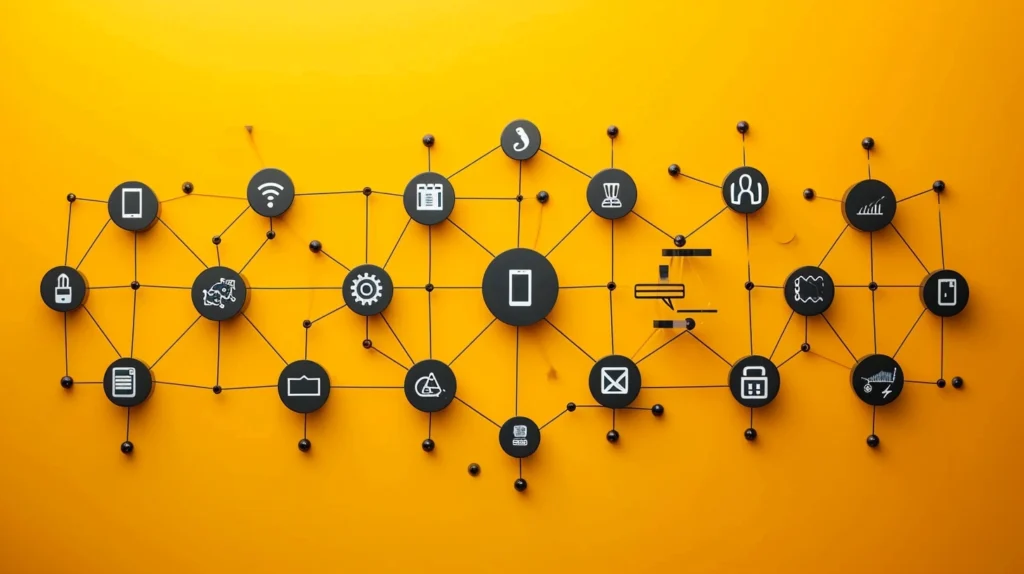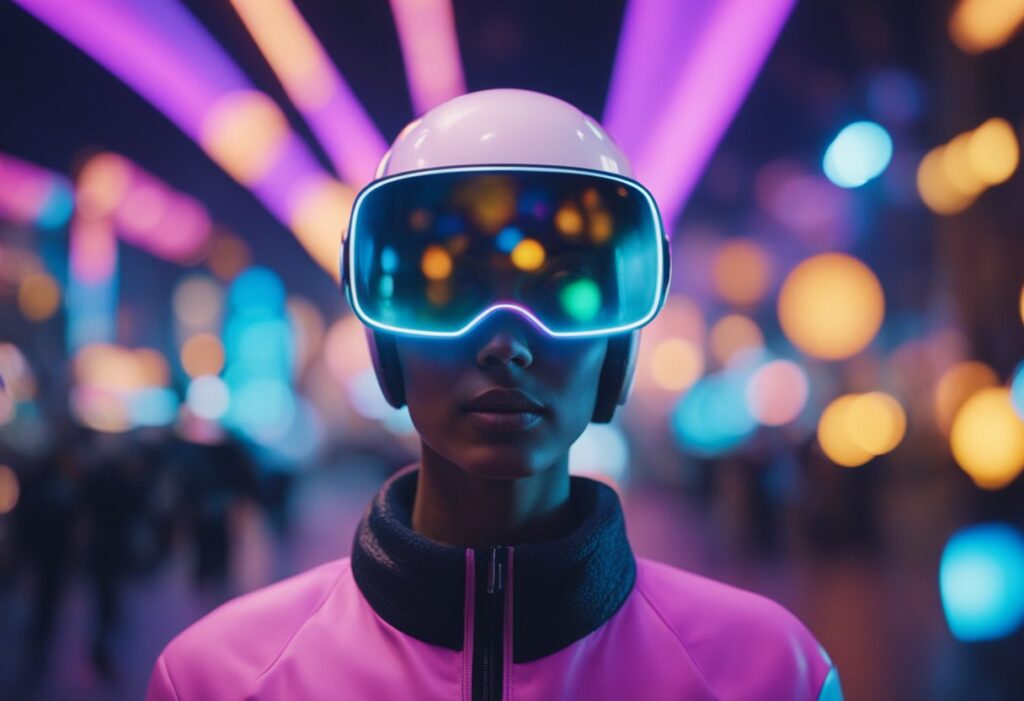The world of marketing has transformed dramatically with the advent of AI marketing and artificial intelligence. AI-powered marketing personalization is at the forefront of this revolution, offering businesses the ability to tailor experiences based on individual customer preferences. This technology enhances customer engagement by creating more relevant and personalized interactions across various platforms.

More than just a trend, AI in marketing personalization helps businesses analyze vast amounts of data to predict consumer behavior and customize marketing strategies accordingly. By using AI, marketers can automate and streamline their efforts, ensuring that each customer receives a unique, tailored experience that increases satisfaction and loyalty. Consumers are increasingly expecting personalized interactions, making AI-driven personalization not just an advantage but a necessity.
One compelling aspect is how AI-powered personalization effectively targets niche audiences. Marketers can create specific content and offers that resonate deeply with smaller, segmented groups, boosting conversion rates and fostering stronger connections. Overall, AI-powered personalization is a powerful tool that is reshaping the marketing landscape and setting new standards for customer engagement.
Key Takeaways
- AI enhances customer engagement through personalized interactions.
- Marketers can predict behavior and customize strategies with AI.
- Targeting niche audiences is more effective using AI-powered personalization.
Benefits of AI-Powered Personalization
Enhanced Customer Engagement AI-driven personalization leads to higher engagement rates. For instance, businesses using AI for personalization see up to a 20% increase in sales. Amazon’s recommendation engine, which accounts for 35% of its sales, is a prime example of this benefit.
Improved Customer Loyalty Personalized experiences increase customer loyalty. A study by Salesforce found that 84% of customers are more likely to stick with brands that treat them like individuals.
Increased Conversion Rates AI-powered personalization significantly boosts conversion rates. For example, companies implementing AI-based recommendations saw a 10-30% increase in revenue per visitor.
Expert Opinions and Future Predictions Experts predict that AI personalization will become even more sophisticated with advancements in machine learning and natural language processing. Gartner forecasts that by 2025, AI-driven approaches will be a key differentiator in customer experience for 75% of organizations.
The Rise of Invisible Personalization

AI-powered personalization is changing the marketing landscape. This kind of personalization tailors content and experiences without customers even noticing the behind-the-scenes work.
Invisible personalization leverages vast amounts of data. AI algorithms sift through data, identifying patterns in customer behavior. They then use these insights to make decisions on what to present to the customer.
Key Elements:
- Data Collection: Data is gathered from various sources like website visits, purchase history, and social media interactions.
- Behavior Analysis: AI analyzes this data to understand individual preferences and habits.
- Personalized Recommendations: Based on the analysis, personalized content is seamlessly integrated into customer experiences.
For instance, AI can personalize marketing emails based on customer preferences. It can suggest products they are likely to buy or offer discounts on items related to past purchases.
Examples of Invisible Personalization:
- Amazon’s product recommendations
- Netflix’s show suggestions
Invisible personalization ensures that customers receive relevant content, enhancing their experience without intruding on their privacy.
Benefits:
- Increased Engagement: Customers are more likely to engage with content tailored to them.
- Higher Conversion Rates: Personalized recommendations can lead to higher sales.
- Improved Customer Loyalty: Satisfied customers tend to return.
AI-powered personalization relies heavily on continuous data analysis. This allows businesses to stay updated with ever-changing customer preferences and behaviors.
In the field of marketing, invisible personalization is a powerful tool. It allows companies to create meaningful, tailored experiences, making it easier to connect with customers effectively.
The Power of AI in Personalization
AI-powered marketing personalization offers significant benefits, including dynamic website content tailored to individual users, highly relevant product recommendations, and micro-moment marketing strategies. These tactics enhance customer engagement and conversion rates. AI marketing tools play a crucial role in enhancing these strategies through automation and data analysis.
Dynamic Website Content
AI allows websites to adjust content dynamically, catering to each visitor��s preferences. By using machine learning algorithms, websites analyze user behavior in real time and modify the content accordingly. This approach increases customer engagement by showing the most relevant information, whether it’s articles, products, or special offers. AI marketing platforms enable websites to adjust content dynamically, ensuring compliance with data use regulations while optimizing the customer experience.
For example, a user visiting an e-commerce site might see personalized banners displaying products similar to those they have previously viewed or purchased. This level of customization makes the browsing experience more intuitive and satisfying, significantly boosting conversion rates.
Product Recommendations Using Customer Data
AI excels at generating product recommendations that match individual customer preferences. E-commerce platforms use AI to analyze purchase history, browsing patterns, and even social media activity to suggest products that a customer is likely to buy.
These recommendations are more accurate than traditional algorithms due to AI’s ability to process vast amounts of data and learn from it. As a result, customers find products they genuinely need or want, increasing the chances of a purchase. Enhanced recommendations thus drive higher sales and improve overall customer satisfaction.
Micro-Moments Marketing with Predictive Analytics
Micro-moments refer to those brief instances when consumers turn to their devices for quick information or to make swift decisions. AI captures these micro-moments through real-time data analysis and delivers personalized content instantly. An effective AI marketing strategy is essential for capturing these micro-moments and delivering personalized content instantly.
For instance, if a customer searches for “best-running shoes” during a workout, AI can immediately present targeted ads or recommendations for top-rated running shoes. Such timely interventions attract customers at the perfect moment, making marketing efforts more effective.
Generative AI can even create personalized ads or messages on the fly, aligning perfectly with the micro-moment and enhancing the overall personalization strategy. This immediacy translates to improved engagement and higher conversion rates.
Implementing AI-Powered Personalization
Selecting the Right Tools
For small to medium-sized businesses, tools like Optimizely and Segment provide affordable and scalable personalization solutions. Larger enterprises might benefit from comprehensive platforms like Adobe Experience Cloud or Salesforce Marketing Cloud, which offer advanced features and integration capabilities. Choosing the right AI marketing tool is crucial for effective personalization and achieving desired outcomes.
Potential Challenges and Solutions
- Data Privacy Concerns:
- Challenge: Ensuring compliance with regulations such as GDPR.
- Solution: Use tools with built-in compliance features and maintain transparent data practices.
- Integration Issues:
- Challenge: Integrating AI tools with existing systems.
- Solution: Choose platforms known for seamless integration and offer robust support and documentation.
- High Initial Costs:
- Challenge: High upfront investment for advanced AI tools.
- Solution: Start with scalable solutions and gradually upgrade as ROI becomes evident.
- Skill Gaps:
- Challenge: Lack of expertise in AI and data analytics.
- Solution: Invest in training and consider hiring experts or consulting firms to bridge the knowledge gap.
Implementing AI-powered personalization requires careful selection of tools and addressing potential challenges. By choosing the right platforms and strategies, businesses can enhance customer engagement and drive significant growth.
Personalization for Niche Audiences

AI-powered marketing personalization is revolutionizing how brands connect with their audience by offering tailored experiences. With advanced segmentation capabilities, AI identifies niche markets, allowing brands to address specific needs.
Key Benefits:
- Tailored Experiences: AI analyzes user behavior and preferences to create customized content.
- Customer Satisfaction: Personalized content enhances user engagement and satisfaction.
- Trust: Customization fosters trust, as customers feel understood and valued.
AI helps companies segment audiences into finely tuned categories. By understanding individual preferences, brands can deliver content that resonates on a deeper level. understanding individual preferences, brands can deliver content that resonates on a deeper level.
Segmentation Examples:
| Segment | Personalization Techniques |
|---|---|
| Fashion Enthusiasts | Customized product recommendations |
| Tech Users | Personalized email campaigns |
| Foodies | Tailored recipe suggestions |
By focusing on niche audiences, brands can optimize marketing strategies. For instance, they can tailor their messaging and offers to match the unique preferences and behaviors of different segments. This approach maximizes relevance and engagement.
AI-powered marketing tools also help anticipate customer needs. By predicting trends and preferences, brands can stay ahead of the competition and deliver timely, relevant content.
Utilizing AI for segmentation and personalization not only improves customer satisfaction but also builds long-term trust. When customers receive content that meets their specific needs, they are more likely to remain loyal to the brand.
Personalized Marketing Automation Workflows

Marketing automation powered by artificial intelligence enhances the ability to deliver personalized marketing experiences. These workflows streamline tasks like content personalization, lead scoring, and targeted email campaigns by analyzing customer data and preferences. AI marketing teams play a crucial role in optimizing these workflows and demonstrating value to stakeholders.
Creating automated workflows begins with segmentation. AI tools categorize customers based on behavior, interests, and demographics, ensuring that content reaches the right audience.
Example of an Automated Workflow
- Lead Generation:
- Capture leads through forms or landing pages.
- Automatically segment leads based on interests. Digital marketers can leverage these automated workflows to enhance campaign effectiveness and improve customer engagement.
- Lead Nurturing:
- Send personalized email sequences tailored to each segment.
- Use AI-driven recommendations to suggest relevant products or content.
- Conversion Optimization:
- Track engagement metrics.
- Trigger follow-up actions based on user interactions to boost conversion rates.
| Workflow Step | Automation Tools Used | Benefits |
|---|---|---|
| Lead Segmentation | AI Algorithms, CRM Software | Targeted messaging |
| Email Personalization | Marketing Automation Platforms | Higher engagement |
| Behavior Tracking | Analytics Tools | Improved customer insights |
Benefits
Efficiency:
- Automation reduces manual tasks, increasing productivity.
- Marketers can focus on strategy and creative efforts.
- Marketing teams can focus on more strategic initiatives rather than overwhelming tactical operations.
Conversion:
- Personalized approaches lead to higher conversion rates.
- Timely follow-ups improve the chances of sales closure.
Effective personalized marketing automation workflows are integral to modern AI-powered marketing** personalization** strategies. Businesses can improve efficiency and boost conversion by leveraging the power of AI.
Personalization Powered by the Internet of Things (IoT)

The Internet of Things (IoT) revolutionizes marketing by connecting devices and gathering real-time data to enhance customer experiences.
IoT Devices and Data Collection
IoT devices, like smartwatches and home assistants, collect vast amounts of data. This data provides valuable insights into consumer behaviors and preferences.
Real-Time Personalization
With IoT, brands can deliver targeted offers and content. For example, smart fridges can suggest recipes based on their contents, or wearable fitness trackers can recommend workout gear. AI can also enhance social media posts by personalizing content based on user behavior and preferences.
Integration with AI
Combining IoT data with AI enhances personalization even further. AI analyzes the data collected by IoT devices to predict consumer needs and tailor marketing strategies accordingly. This leads to more accurate and effective personalized marketing efforts.
Benefits of IoT in Marketing
- Enhanced Customer Engagement: Personalized interactions increase customer loyalty.
- Efficient Campaigns: AI-powered analysis helps to optimize marketing efforts.
- Innovative Experiences: IoT enables unique customer experiences, such as personalized in-store promotions based on smart devices.
Case Example
In retail, IoT-enabled beacons can detect a customer’s location in-store and send personalized offers to their smartphones. This creates a seamless and engaging shopping experience.
Challenges
Although IoT opens many opportunities, it also raises privacy concerns. Businesses must handle data responsibly and ensure compliance with data protection regulations.
For more information on how AI and IoT are shaping smart marketing, refer to Artificial Intelligence – Internet of Things Integration for Smart Marketing: Challenges and Opportunities.
The Personalization Arms Race

In today’s marketing landscape, companies are investing heavily in AI-powered marketing personalization. This investment offers a competitive advantage, allowing businesses to tailor products and messages to individual preferences.
AI algorithms analyze vast amounts of data. This helps marketers understand customer behavior and predict future actions. Personalized marketing can drive growth by increasing customer engagement and loyalty.
Companies are in a constant arms race to improve AI personalization. Those who invest wisely see more precise targeting and better customer experiences. Data privacy is a critical concern in this race. Businesses must ensure they adhere to regulations while utilizing customer data effectively.
Benefits of AI personalization include:
- Increased engagement: Tailored messages resonate more with customers.
- Higher conversion rates: Personalized experiences often lead to more sales.
- Efficient marketing spend: AI helps identify the most profitable customer segments.
Yet, marketers face challenges. Balancing personalization with privacy is delicate. Companies must improve transparency and build trust with their audience.
The future of marketing lies in leveraging AI to its fullest potential. Those who navigate the data privacy landscape responsibly while pushing the boundaries of AI-powered marketing personalization will dominate the market.
To stay ahead, businesses should:
- Regularly update their AI models.
- Focus on ethical data usage.
- Continuously analyze and refine their strategies.
In this evolving field, staying informed and agile is crucial for success.
The Human Touch in a Personalized World

AI-powered marketing personalization offers many benefits, but the human touch remains essential.
Empathy plays a key role. While AI can analyze data, understanding human emotions and providing empathetic responses is still a human strength. This emotional intelligence helps build deep connections with customers.
Connection is vital in marketing. Although AI can tailor content, human interactions create memorable experiences. People remember positive, personal interactions more strongly than automated ones.
Customer engagement improves when there is a balance between AI efficiency and human involvement. For example, a chatbot can provide quick answers, but human agents can step in for more complex issues, enhancing overall satisfaction.
Trust is crucial in any relationship, including that between businesses and customers. Human touch fosters trust, as customers often feel more confident and valued when interacting with real people rather than automated responses.
In AI-powered marketing personalization, human oversight ensures ethical use of data and maintains a personal touch. While AI handles repetitive tasks, humans can provide creativity and personal insights that machines cannot.
A blend of AI efficiency and human empathy ensures optimal marketing strategies, combining the strengths of both to offer the best customer experiences.
To learn more about the role of human touch in digital customer service, you can explore a conceptual framework of relational personalization.
Ethical Considerations of Hyper-Personalization

Using AI to power marketing, and personalization offers many advantages. Data security is a key concern. Companies collect vast amounts of personal data. They must ensure this data is protected from breaches. Strong encryption and regular security audits are essential.
Transparency is also crucial. Customers should know how their data is used. Clear privacy policies help build trust. Companies should explain AI decisions in plain language.
Another important issue is compliance. Laws like GDPR in Europe and CCPA in California set strict rules. Companies must follow these to avoid hefty fines. They need to stay updated with changing regulations.
Ethics in AI-powered marketing personalization cannot be overlooked. There is a fine line between personalized experiences and intrusive behavior. Marketers should avoid using overly invasive techniques. Respecting user consent is critical.
Here is a list of important ethical considerations:
- Data Security: Protect personal information from breaches.
- Transparency: Inform customers about data usage and AI processes.
- Compliance: Adhere to regulations like GDPR and CCPA.
- Ethics: Avoid intrusiveness and respect customer consent.
Overall, balancing these ethical considerations ensures the responsible use of AI in hyper-personalized marketing.
The Future of Personalization: AI and Human Collaboration

AI is revolutionizing personalized marketing by analyzing vast amounts of data to predict customer behaviors. Predictive analytics enables companies to tailor their strategies to individual preferences, enhancing customer experience.
Human interaction remains crucial. AI can determine patterns and trends, but humans provide the creativity and empathy needed to connect with customers emotionally. Combining AI insights with human intuition ensures that marketing messages resonate on a deeper level.
Customer loyalty is strengthened through personalized experiences. AI helps understand the unique needs of each customer and craft targeted messages and offers that foster loyalty. However, humans must oversee these processes to ensure ethical usage and address concerns like data privacy.
Collaboration between AI and human teams leads to more effective marketing. For example, marketing, IT, and data science teams must work together to implement AI solutions, allowing marketers to generate personalized content seamlessly. This cooperation maximizes the benefits of AI while safeguarding the human touch necessary for authentic interaction.
Companies like Covergirl, for instance, leverage AI in their stores to offer personalized experiences for customers, while human staff enhance these interactions by providing personal attention and support. This balance between automation and human touch creates a more engaging and satisfying customer journey.
Tables and tools can illustrate how AI and human involvement complement each other:
| Aspect | AI Contribution | Human Contribution |
|---|---|---|
| Data Analysis | Predictive analytics for behavior patterns | Interpretation and creative application |
| Customer Interaction | Automated, personalized messaging | Emotional connection and empathy |
| Ethical Oversight | Algorithmic processing | Ensuring ethical standards and data privacy |
Future Trends
Emerging Technologies: Generative AI
- AI-Driven Predictive Analytics:
- Predictive analytics will refine personalization by anticipating customer needs before they arise. Tools like H2O.ai and RapidMiner are leading this space.
- Voice and Visual Search:
- The integration of AI with voice assistants and visual search will personalize experiences based on spoken or image inputs, as seen with Google Lens and Amazon Alexa.
Industry Leader Insights
Satya Nadella, CEO of Microsoft, emphasizes that “AI will democratize and optimize personalization at scale,” predicting that AI will increasingly personalize content in real time based on evolving customer data.
AI-driven personalization is set to become more dynamic and anticipatory, with emerging technologies and insights from industry leaders shaping its future. Businesses must stay agile and adopt these innovations to maintain a competitive edge.
Case Studies of Successful AI-Driven Personalization

Netflix uses AI to provide personalized viewing recommendations. By analyzing user behavior, such as watch history and search preferences, Netflix can suggest shows and movies that viewers are more likely to enjoy. This tailored approach has significantly increased viewer engagement and retention rates.
Sephora has enhanced its customer experience through AI-powered personalization. The beauty retailer uses AI to offer product recommendations based on user preferences and purchase history. Additionally, Sephora’s virtual artist tool allows customers to try on makeup virtually, creating a customized shopping experience.
Spotify is another success story in AI-driven personalization. By analyzing listening habits, Spotify generates personalized playlists like Discover Weekly and Daily Mix. This approach has made Spotify a leader in the music streaming industry, boosting user loyalty and engagement.
Notable Use Cases
- E-commerce: Online retailers use AI to recommend products tailored to individual shoppers, increasing sales and customer satisfaction.
- Email Marketing: Businesses can send personalized email campaigns based on customer behavior and preferences, leading to higher open and click-through rates.
- Content Recommendations: Websites and apps like news platforms recommend articles to users based on their reading history.
These examples demonstrate how effective AI-powered marketing personalization can be in various industries. By leveraging data and machine learning, companies can offer tailored experiences that enhance customer loyalty and drive success. For more details on Netflix’s strategies, refer to the AI success at Netflix. Similarly, you can learn about Sephora’s use of AI here.
AI-Driven Personalization Metrics and KPIs with Machine Learning

AI-powered marketing personalization relies on specific metrics and key performance indicators (KPIs) to measure success. These metrics help marketers understand how effectively their strategies are performing and where improvements are needed.
Customer Data plays a crucial role. Analyzing behavioral patterns and preferences enables more accurate personalization. Metrics like click-through rates (CTR) and conversion rates are vital. For instance, a higher CTR indicates that personalized content is resonating with the audience.
Engagement is another significant metric. Tracking time spent on site, page views and social media interactions provide insights into how well-personalized marketing efforts are engaging customers. Higher engagement often correlates with better customer experiences.
ROI (Return on Investment) is a critical KPI. Calculating ROI helps determine the financial benefits of AI-driven personalization. By comparing the revenue generated against the costs, companies can gauge the effectiveness of their marketing investments.
Revenue metrics are directly impacted by personalization. Metrics such as average order value (AOV) and customer lifetime value (CLV) show how personalized marketing can drive sales and increase customer loyalty.
Here’s a simple table summarizing key metrics:
| Metric | Description |
|---|---|
| CTR (Click-Through Rate) | Measures the percentage of clicks per number of impressions. |
| Conversion Rate | Percentage of visitors who complete a desired action. |
| Engagement Rate | Interaction levels with content (likes, shares, comments). |
| ROI (Return on Investment) | Financial return from personalization efforts. |
| AOV (Average Order Value) | Average amount spent per transaction. |
| CLV (Customer Lifetime Value) | Total revenue expected from a customer over their lifespan. |
Accurate use of these metrics ensures that AI-driven personalization strategies are not only effective but also continuously optimized for better results. Monitoring these KPIs regularly provides actionable insights for strategic adjustments.
For more detailed information, you can visit the article on AI-driven marketing.
Navigating the Maze: Overcoming Challenges in AI Personalization

AI-powered marketing personalization presents several key challenges.
First, protecting privacy is crucial. Personalized marketing involves handling vast amounts of personal data. Companies must ensure that data collection and usage comply with regulations like GDPR.
Second, ensuring accuracy in data processing is essential. Inaccurate data can lead to incorrect personalization, decreasing customer trust.
Avoiding bias is another significant challenge. AI systems can unintentionally reflect or amplify societal biases. Regular audits and diverse training data can help manage this issue.
Mitigating risks related to security is also important. With the increase in cyber threats, companies must implement robust security measures to protect sensitive information.
Key Challenges and Mitigation Strategies
| Challenge | Mitigation Strategy |
|---|---|
| Protecting Privacy | Follow data protection regulations |
| Ensuring Accuracy | Regularly update and validate data |
| Avoiding Bias | Use diverse and unbiased training data |
| Mitigating Security Risks | Implement strong cybersecurity measures |
Navigating these challenges in AI-powered marketing personalization requires strategic planning. Companies need to protect customer data, ensure accuracy, avoid bias, and mitigate risks effectively. These steps are essential to build and maintain customer trust while delivering personalized marketing experiences. For further insights on tackling these issues, refer to Navigating the Maze.
Conclusion

AI-powered marketing personalization is now an indispensable tool in digital marketing, driving efficiency and customer engagement. By tailoring efforts to individual preferences, businesses forge deeper connections and enhance the shopping experience. The benefits are clear: increased efficiency, better targeting, and higher customer satisfaction. As AI technology evolves, its applications in marketing will continue to advance, promising even more precise targeting and content personalization. Marketers should invest in AI tools and stay abreast of trends to fully leverage AI’s potential in personalization and maintain a competitive edge.